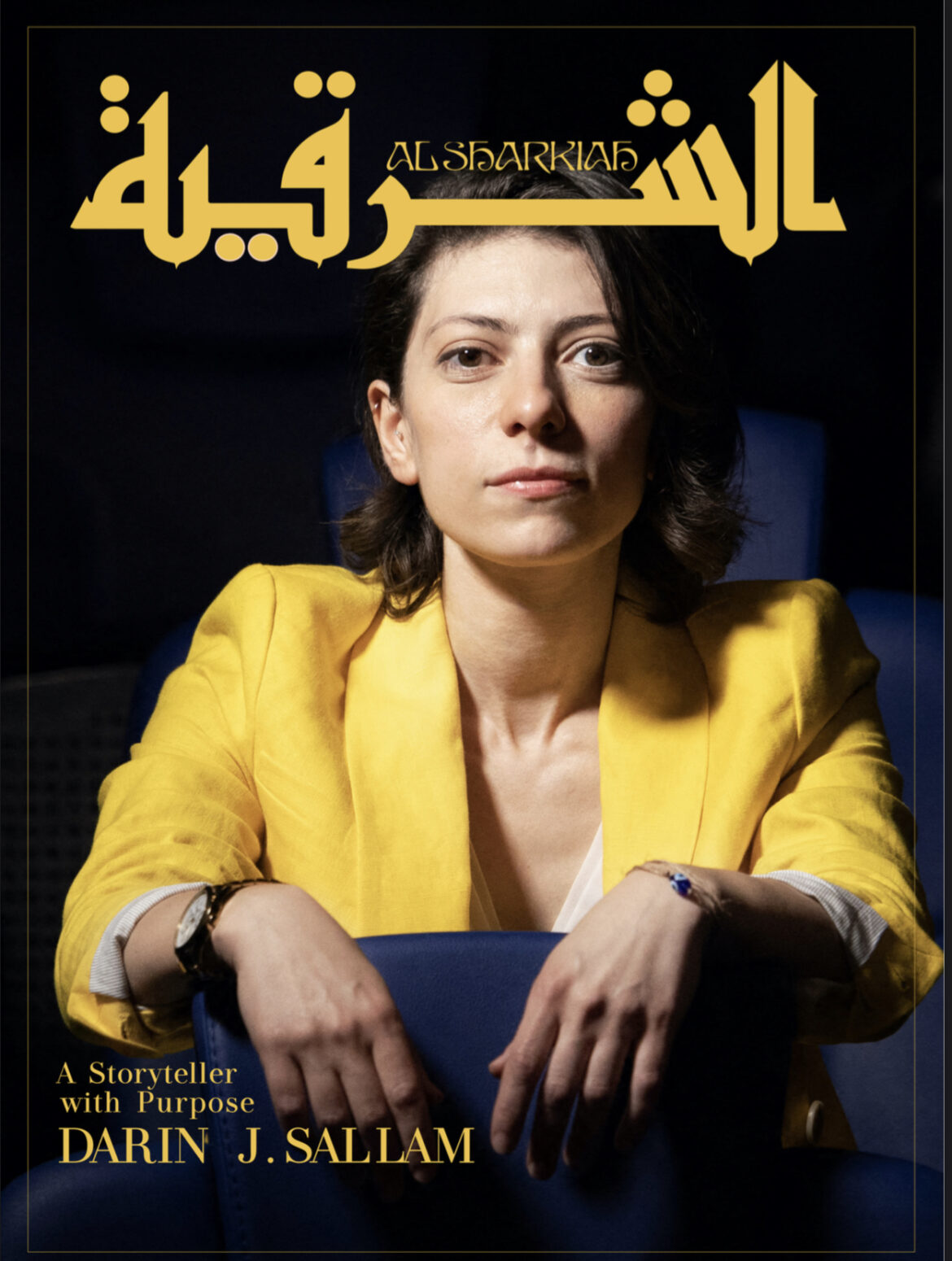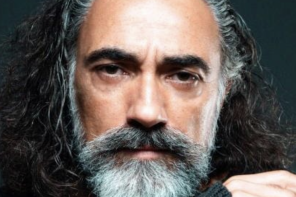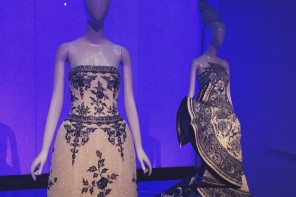Darin J. Sallam is a Jordanian writer and director of Palestinian roots. She holds an MFA from the Red Sea Institute for Cinematic Arts (RSICA), affiliated with the University of Southern California. She most recently grabbed global attention for her critically acclaimed debut feature film FARHA (2021), which dives into the Nakba and the suffering of the Palestinian people. The feature had its world premiere at the 46th Toronto International Film Festival, won 12 awards (to date) from international film festivals including best film, best director, the jury award, the audience award and the grand prize, started streaming in December 2022 on Netflix worldwide.
Darin has collected several awards over the years for her shorts but in addition to her commitment to her projects she was also a jury member at international film festivals and is co-founder & managing partner at the Amman-based production company TaleBox.
We got the wonderful opportunity to sit down with Darin and learn more about her craft, projects and what’s next.
Darin, we are incredibly excited to hear about you and your story, tell us about what inspired you to study film?
It is my pleasure to indulge in this conversation with you. I always say that I never knew I want to be a director, I just found myself making short films. After making my first short film I realized that it is my passion and in that moment I knew that I was born to make movies. Then I thought of polishing my talent by studying film, so I started applying to film schools and that’s when I got a scholarship from the Red Sea Institute of Cinematic Arts (RSICA). But I believe that Life experience is equally if not more important than any academic experience for a filmmaker because life is the best school.
When it comes to art people say there’s a “method to the madness”, are there any methods or rituals you do to get your creative juices flowing?
It depends on the nature of the project. Usually when I’m writing I spend most of my time thinking and walking until it is time to sit and write. As a percentage I would say thinking takes 80% of the time and then writing is the time where I unleash all my thoughts on paper in an intensive explosive 20% of the time. However, for directing it is more implementing all my thoughts and feelings into a reality and every time it is a new journey but my main method is allowing my feelings and emotions to guide me through it.
As a director and a writer, do you enjoy doing one more than the other?
Directing is my passion and I enjoy it more than writing. But I also love writing to be able to direct it after.
What are some of the challenges you have encountered as a woman in film?
At the beginning of my career, I used to feel that some people would take me lightly because I am a woman, but that never stopped me from accomplishing my goals. I feel that patriarchal mentalities are still prevalent in our region but I also believe that the tide is turning and that people are realizing more and more every day the importance of gender justice and the participation/contribution of women counterparts.
You have directed a handful of short films, tell us which one was most significant to you personally and why?
I think it’s THE DARK OUTSIDE, especially that I went through something similar, which makes it a story I relate to. It is also a coming-of-age film which I love, and I explored a lot of symbolism in the film. Such as the butterfly that symbolizes coming of age and freedom which are important themes to me. But also, the darkness which is one of my fears. In a way, THE DARK OUTSIDE was a foreshadowing to my feature narrative film FARHA, where it had similar themes; coming of age, the darkness, and instead of the butterfly this time it was the cocoon embodied by Farha in the pantry.
Tell us about TaleBox and how it came to be?
TaleBox is a women lead production company based in Amman/Jordan, I am a co-founder and managing partner. We established the company to produce films and create original content. FARHA is the first feature narrative film we produced, and we also offer Training and Casting services.
FARHA has amassed global recognition, how did this project come to life and how long has it been in the making?
Where do I start from, it was a long journey and it’s still ongoing, it started from a set-up, a girl that was locked up in a room in Palestine in 1948 that I heard about when I was a child, to a film that is now traveling the world and reaching to people’s hearts every day.
Was there anything in particular that surprised you about FARHA’s reception from the global community?
The most surprising part was that many people from the west didn’t know about Nakba and the suffering of Palestinians.
Tell us about a particularly rewarding moment or aspect of directing FARHA?
Every time I see people being emotional after watching the film, every time I hear “thank you for making this film” I feel something, I feel that all this hard work wasn’t for nothing, the most satisfying feeling for me as a director is to see how my film is making a change, and it’s still ongoing Al-hamdulillah.
You have won several awards throughout your career, where do you put them all?!
I keep some of them in my house and there are some in my office. I’m getting a display cabinet that fits them all together.
Is there one award that feels particularly special to you?
They are all very special and dear to my heart. Each one of them came at a specific moment and created a memory that I will cherish forever. Each award has a special and unique story (from renowned film festivals including Aswan, Malmö, Casablanca, Red Sea, Tripoli, etc.), where the jury – whose members are esteemed professionals of the cinema industry regionally and internationally whom I respect – would fight to ensure my work receives the recognition it deserves.
So it’s difficult to choose only one, but one of the awards, the Asia Pacific Screen Award APSA (The Asian Oscars), was a historic first win by a Jordanian director and I am really proud of that accomplishment and will never forget it. And I will never forget the bravery of APSA for taking the risk in choosing FARHA.
In addition, one of the awards that I received for my short film, THE DARK OUTSIDE, was The Falcon Award of the Franco Arab Film Festival in 2012. This was also very significant for me because at that time, the jury was able to see beyond a low-budget student film and recognized the director’s voice behind it – their words stayed with me and were very motivational, giving me incredible drive to continue in this path and this was the beginning of a beautiful friendship with this festival and the amazing people behind it who couldn’t wait to screen my following short THE PARROT and of course my debut feature FARHA as their opening films in Paris Noisy-le-sec.
You have participated as a jury member at international film festivals, what is that experience like and was there a film or young director that really caught your attention?
As a film director myself it makes me feel more responsible as a jury member, because I fully understand and know how important recognition is for filmmakers especially at the start of their careers. It gives them a push and moral support to continue on. It is a responsibility that I don’t take lightly. I came across many beautiful films and talented filmmakers. And I remember an Iranian short film that I really liked at a film festival in Italy.
If you could jump to the past and talk to Darin, back when she was studying at RSICA, what’s one thing you would want her to know?
Be present and enjoy every moment because what’s coming is very hard and challenging.
Is that the same advice you would give to all Middle Eastern women pursuing film?
Yes, I would add that the fastest way to get there is steadily, so never give up and never wait for opportunities to come your way. Create your own opportunity.
What’s next for Darin Sallam?
I have a couple of projects in the development stage (a lot of thinking and walking is happening) and I cannot wait to share about them in due course.
Text by Kareem Bishara




